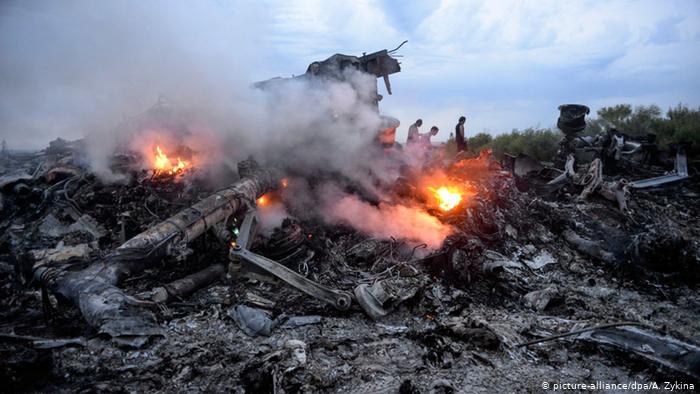Vital ECHR judgement opens way for Russia to be held accountable for MH17 and other war crimes in Ukraine

The Grand Chamber of the European Court of Human Rights [ECHR] has found unanimously that occupied Donbas (the Russian proxy ‘Donetsk and Luhansk people’s republics’ or D-LPR) were under Russian jurisdiction from 11 May 2014. This means that the inter-state applications to ECHR against the Russian Federation over the shooting down by a Russian BUK missile of MH17 and killing of 298 civilians can be considered by the Court, as can multiple other claims brought by Ukraine over crimes committed in occupied Donbas.
ECHR does not move swiftly, and it is over two years since ECHR first decided to merge the separate applications from Ukraine and the Netherlands into one. The Grand Chamber judgement from 25 January 2023 was only on admissibility, not on the merits of the case. The judgement is, nonetheless, critical, since the Court concluded that the applications are admissible precisely because Russia, regardless of its constant denials, wielded effective control over occupied Donbas from 11 May 2014 until at least 26 January 2022 (the date of the ECHR hearing). Russia was therefore in control when the so-called ‘separatists’ (many of whom were Russian nationals) asked for and received from the Russian army’s 53rd Anti-Aircraft Missile Brigade the BUK missile launcher used to shoot down the Malaysian airliner MH17 on 17 July 2014, as well as when other war crimes were committed. Russia’s only line of argument here, as at other international courts, has been to deny jurisdiction to examine the case.
As well as the decision regarding Russia’s control over occupied Donbas, the Court also addressed the issue of Russia’s withdrawal from the European Convention on Human Rights and, therefore, ECHR, in 2022. Although Moscow tried to ‘legislate’ backdating this withdrawal to March 2022, ECHR was clear in its decision at the time and has reiterated now that Russia ceased to be a member on 16 September 2022. With respect to events in 2014, there should have been no argument. The Court is entirely clear that a Party to the Convention “is not released from the obligations contained in the Convention in respect of any act performed by that State prior to the date on which it is no longer a Party to the Convention”.
An ECHR judgement on the merits of the case against Russia could still be years away. Judging by the way Russia has ignored orders from the UN’s International Court of Justice, first in connection with discrimination of Crimean Tatars and ethnic Ukrainians in occupied Crimea and then, on 16 March 2022, to immediately cease bombing Ukraine, even an order to pay compensation to the families of MH17 victims might well be flouted.
The judgement is still very important, especially since it completely negates Russia’s lies about an alleged ‘civil war’ in Ukraine to which it was supposedly not a party. The same was true with respect to Crimea where a Grand Chamber decision on 14 January 2021 overturned Moscow’s narrative and confirmed that Russia had effectively occupied Crimea since 27 February 2014, i.e. the date of its invasion.
With respect to MH17, the weight of evidence against Russia is overwhelming and has already resulted in a court trial [albeit in absentia] in the Netherlands, three life sentences and thoroughly damning evidence about a trail of command leading very clearly to Russia.
See: Three life sentences and confirmation that Russia should be on trial for the shooting down of MH17
The 25 January ECHR judgement is also crucial because of the other claims brought by Ukraine. It is, in fact, something of an indictment against western countries who were eager for Kyiv to comply with the Russian-foisted political demands of the so-called Minsk Accords, especially those regarding ‘elections’ in ‘D-LPR’. ECHR’s judgement makes it quite clear that these so-called ‘republics’ were always puppets whose strings were pulled by Russia. The Court found, among other things, “that areas in eastern Ukraine in separatist hands were, from 11 May 2014 and up to at least 26 January 2022, under the jurisdiction of the Russian Federation. It referred to the presence in eastern Ukraine of Russian military personnel from April 2014 and the large-scale deployment of Russian troops from August 2014 at the latest. It further found that the respondent State had a significant influence on the separatists’ military strategy; that it had provided weapons and other military equipment to separatists on a significant scale from the earliest days of the “DPR” and the “LPR” and over the following months and years; that it had carried out artillery attacks upon requests from the separatists; and that it had provided political and economic support to the separatists.”
In short, Russia’s war against Ukraine back in 2014, and should be held to account for all war crimes since then.





